Year 11 Biology Students Embrace Fieldwork Excursions

This week, our Year 11 Biology students embarked on a two-day fieldwork camp at the Perth Hills Discovery Centre, located in Mundaring. Throughout the term, the girls have focused on the principles of biodiversity conservation, including methodologies such as sampling, quadrants, and capture-tag-recapture techniques.
The annual camp allows students to gather vital data on the diverse array of animal and plant life inhabiting the area as part of the fieldwork component of the Year 11 Biology curriculum. The experience was particularly enriching, as students were able to discover first hand the geology of the Perth Hills, the unique flora and fauna, the critical importance of preserving biodiversity, and the impact of fire on West Australia’s bushland.
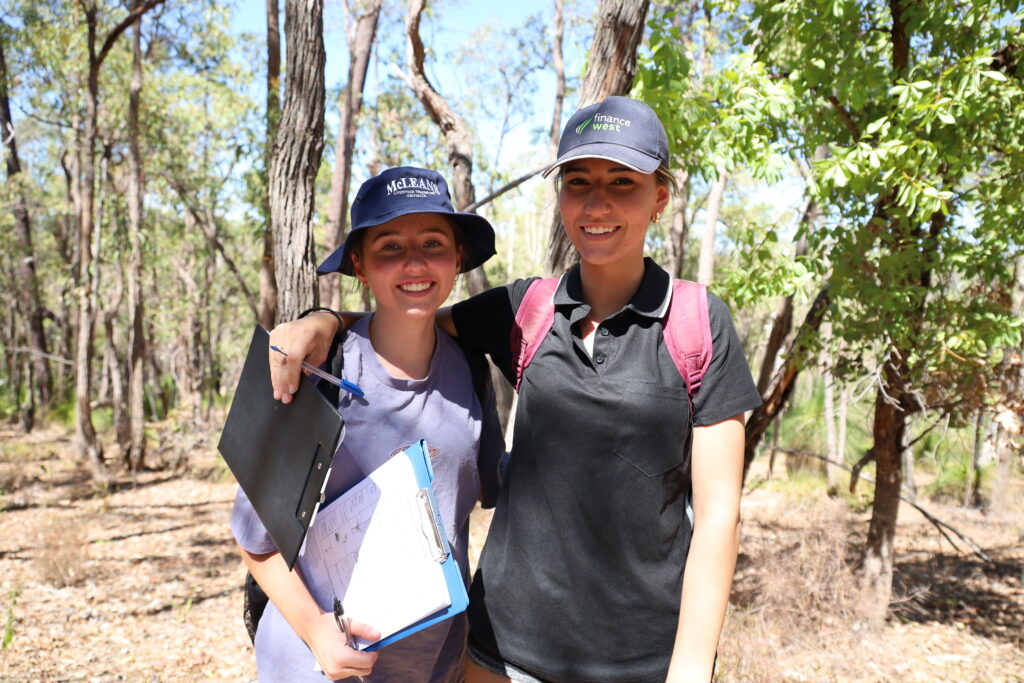
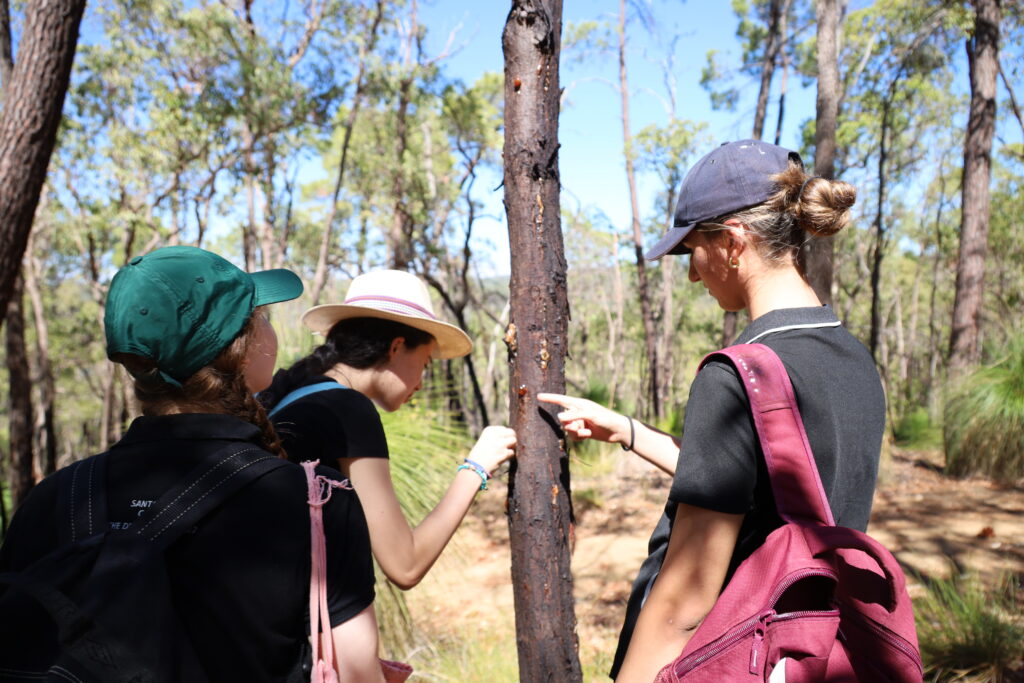
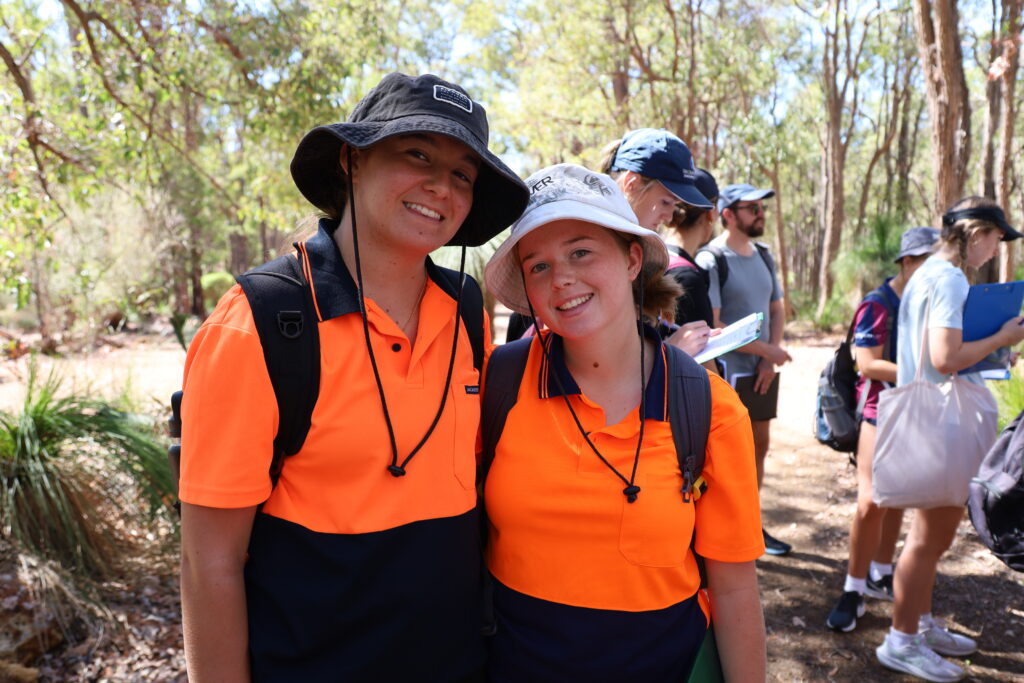
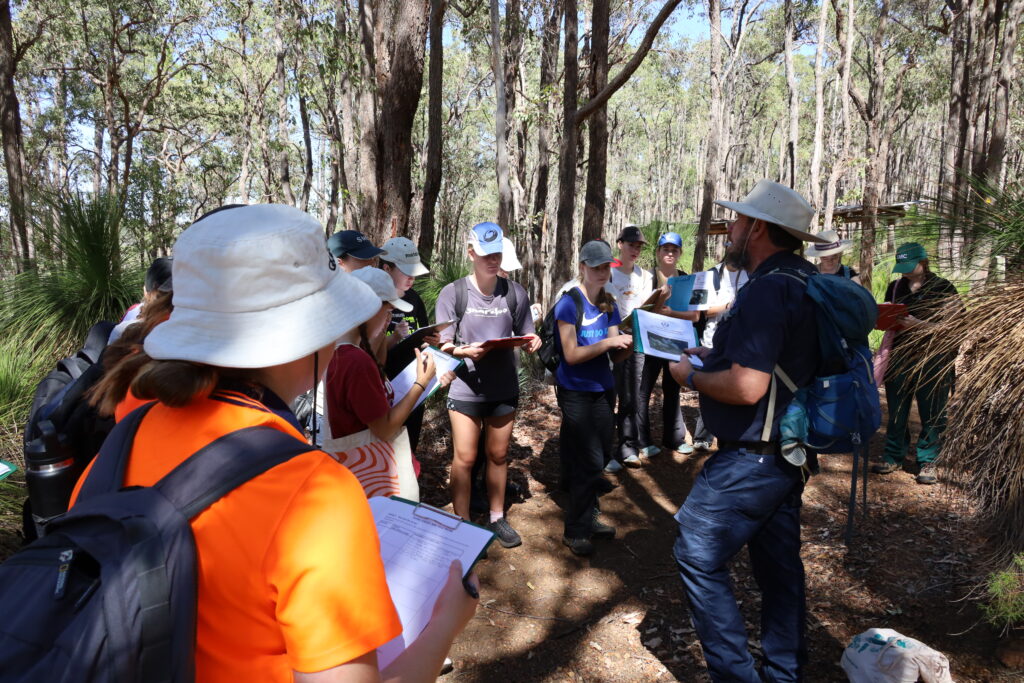
The day kicked off with an engaging and thorough exploration of the region’s diverse flora and fauna, including the Winged Wattle, Marri tree, and Jarrah tree. Following this immersive introduction, the girls then did some quadrat work, a methodical approach for estimating the frequency of different species within a specific area. The afternoon ended by setting up some trapping methods before gathering together to set up their beds for the night and indulging in some pizza.
The following day, the girls were brimming with excitement. Their day commenced at dawn when they measured and released any captured animals, returning them to the forest where they belonged. The thrill of adventure persisted as they encountered rehabilitated creatures like the echidna and joey, providing them with a firsthand understanding of wildlife care and the importance of rehabilitation efforts.
As the day neared its end, the group found themselves at the Kaarakin Black Cockatoo Conservation Centre in Martin. Here, students immersed themselves in the conservation efforts aimed at protecting black cockatoos, a species on the brink of extinction due to habitat loss, illegal poaching, and poisoning.
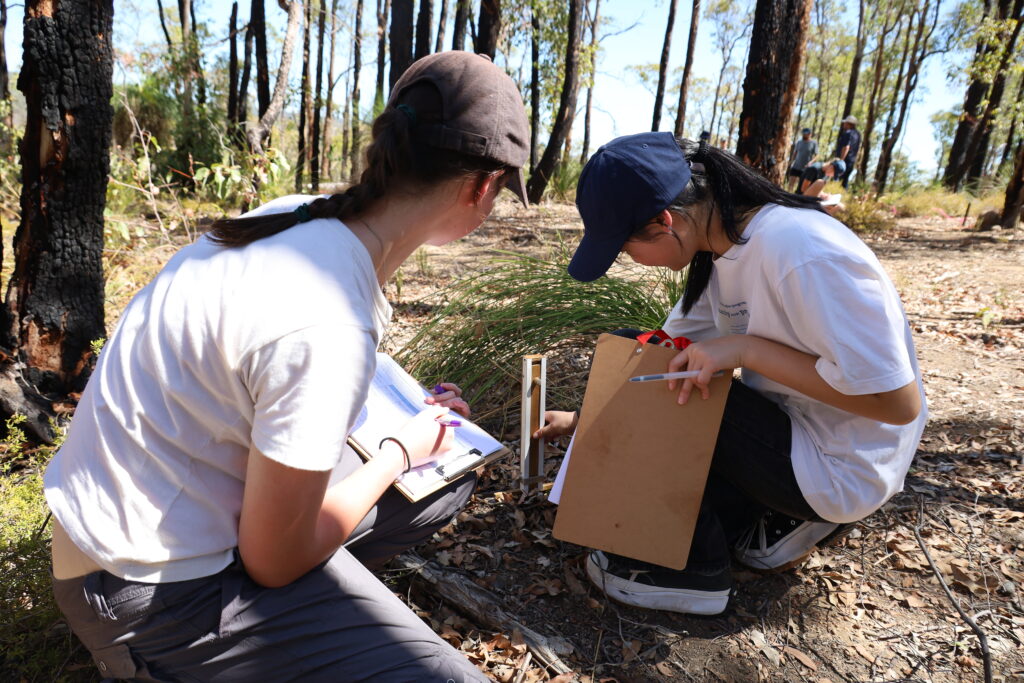
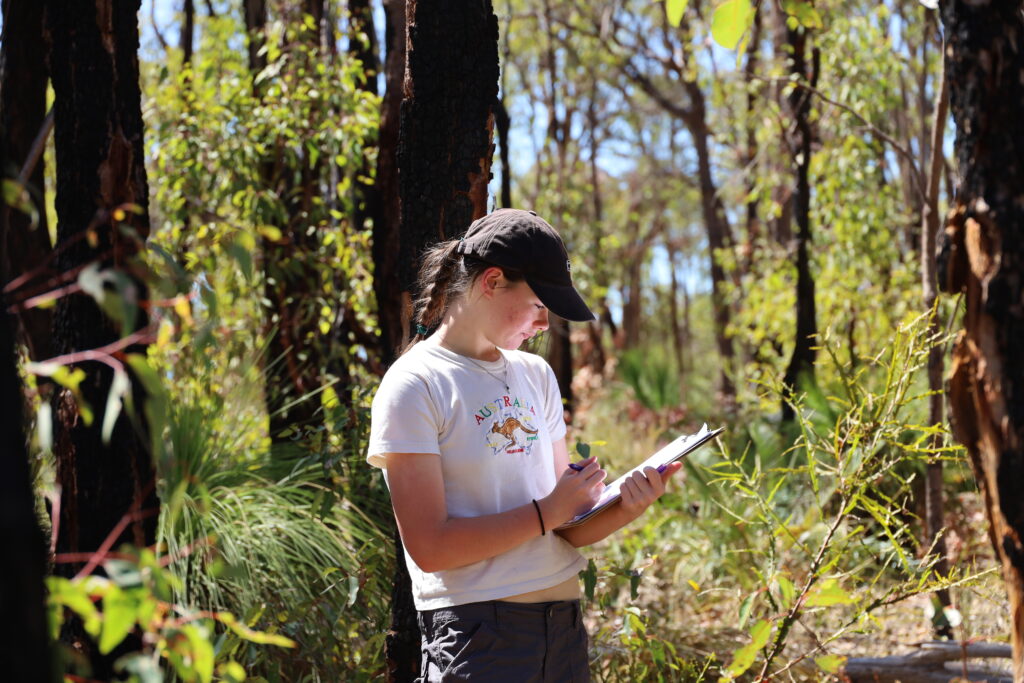
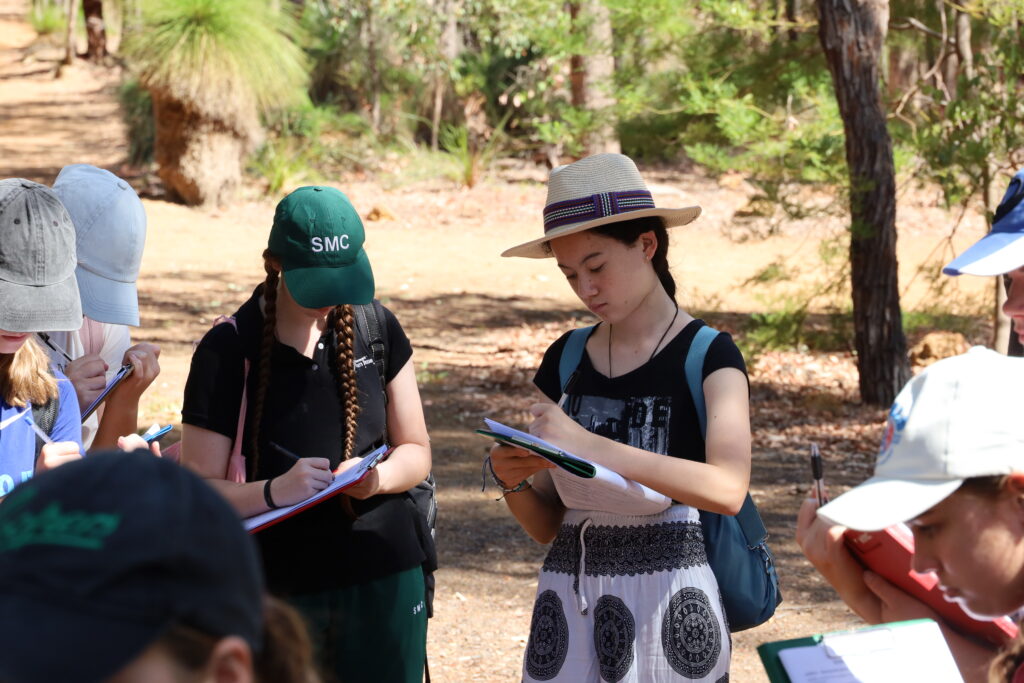
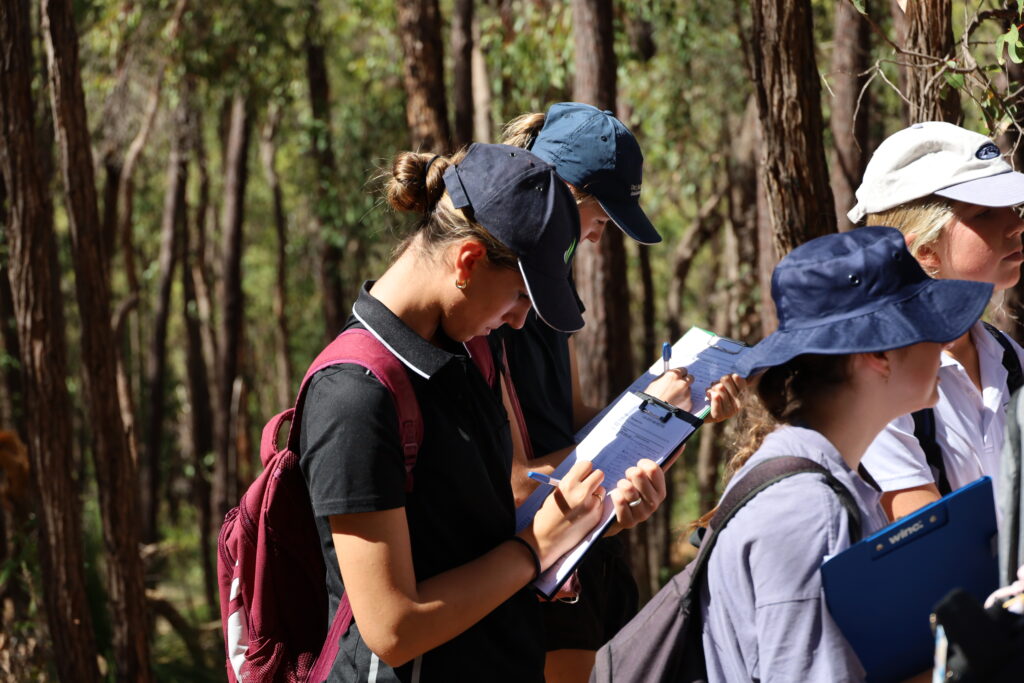
Student Testimonials:
“Before camp, I was looking forward to learning new things, being outdoors, and understanding our world from a different perspective. I enjoyed identifying new species of plants that I didn’t know before and learning interesting facts and features about them.”
When asked about what was the highlight for her, Sarah said, “Sleeping in swags because it is my favourite thing, as well as waking up at 5.00 am to see whether the traps that we set up the night prior caught any marsupials. I was also excited to see the black cockatoos.” Sarah Gugiatti
“My highlight was looking at the scenery, which was so pretty. I most enjoyed setting up the tents, and being able to bond and share dinner with everyone.” Sienna Flora
The camp was a remarkable success, providing invaluable data and imparting crucial lessons on the pivotal role of biologists in tracking the effects of climate change and human activities on ecosystems. Such excursions seamlessly integrate with our College’s vision of Connecting Learning to Life, as well as embodying our College’s core values of Hospitality, Compassion, Justice, Service, and Excellence.
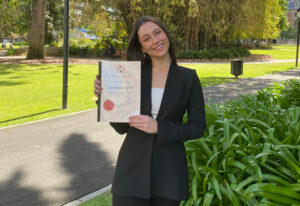
Caitlyn Goldney (2013) Embarks On A Legal Career
Caitlyn Goldney (2013) is a passionate advocate dedicated to giving back to the community through her legal savoir faire.

Combating The Attention Span Crisis In Our Students – Jennifer Oaten
It is no secret that attention spans have been steadily declining, especially among younger generations growing up immersed in digital technology. The average person’s attention span when using a digital device has plummeted from around two and a half minutes back in 2004 to just 47 seconds on average today – a dramatic 66% decrease over the past two decades.

Weekly Wrap Up: Term 2, Week 2, 2024
Week 2 has come to an end! This Weekly Wrap Up features highlights from Scuba Diving Club, the Sisterhood Series, and Boarding ANZAC Service.
- Collaboration, Featured, Stewardship
Author: Santa Maria College
Santa Maria College is a vibrant girls school with a growing local presence and reputation. Our Mission is to educate young Mercy women who act with courage and compassion to enrich our world. Santa Maria College is located in Attadale in Western Australia, 16 km from the Perth CBD. We offer a Catholic education for girls in Years 5 – 12 and have 1300 students, including 152 boarders.






